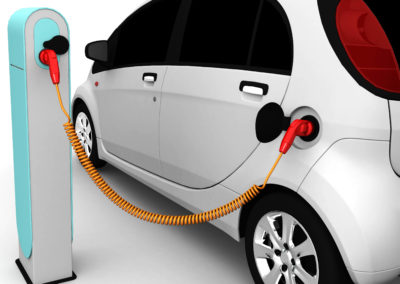Decarbonisation, emissions reduction and dust management
Across the EU, the construction industry accounts for around 40% of energy consumption and 36% of CO2 emissions, due in part to the combustion of diesel to power machinery. In line with UK government legislation, it too must reduce greenhouse gas emissions by 68% by 2030 and 78% by 2035 (compared to 1990 levels) and help reduce climate change.
Construction and demolition activity also contributes significantly to air pollutants, such as particulate matter, which, with long term exposure, can cause damage to the heart and lungs. According to the 2019 London Atmospheric Emissions Inventory (LAEI) such activity was responsible for 30% of PM10, 8% of PM2.5 and 4% of total nitrogen oxides (NOx) emissions. In response, tougher restrictions are already being imposed in some urban areas, with expectations for tighter emissions targets UK-wide reducing health risks for those working on site and living in the local area.
The Environmental Research Group’s Centre for Low emission Construction (CLEC) has been working across the construction industry, with contractors; landowners; plant manufacturers and owners; supply chain; and those responsible for workforce welfare since 2004. Together they are defining innovative ways to reduce air pollution caused by fugitive dust and emissions from machinery such as NRMM – and helping organisations decarbonise and achieve their net zero goals.
Read on about the work they do, how they have helped others from the construction industry – and how they can help you.
Reducing emissions and low emission technologies
Using active construction sites as ‘living labs’, CLEC work with contractors, plant manufacturers, plant owners, and solution providers to develop and identify low emission technologies to displace diesel-driven machinery – and provide cleaner, cost-effective solutions that also reduce the impact on workforce health, local air quality, and the environment.
“The results from these trials highlight how important it is to independently test and evaluate existing and emerging low emission fuels and technologies to produce scientific evidence to inform and encourage the uptake of low emission approaches across the construction industry.” Daniel Marsh, programme manager at the Centre for Low Emission Construction
“I’ve also been lucky to work with Oaktec testing their Clean Air Gas Engine, designed to provide off grid power for construction. These are the technologies that make a global difference, reduce carbon and improve air quality.”
Daniel and the CLEC team are pleased to discuss your specific requirements, and services include:
- Independent scientific testing and evaluation of existing and emerging low emission fuels and technologies
- Sharing of best practice. Understanding telematics and other ways to reduce emissions and improve fleet efficiency
- Evaluation of NRMM (non road mobile machinery) fleet…
- emission inventories and analysis of the impacts of emerging technologies
- independent testing of emissions from individual machines (CO, CO2, NO, NO2, NOX, PN, THC, PM2.5) using ‘portable emission measurement systems’ and scalable modelling across the fleet
- Advisory services for board, investors and other stakeholders
- Expert speaker for employee or industry events and webinars
- Policy support. Providing independent evidence to central and local government
- Literature reviews
Dust monitoring, management and mitigation
Construction and demolition activities generate a significant volume of dust. Managing it can be challenging, and it’s often a cause for complaint. The CLEC team work closely with construction and demolition contractors to define dust management strategies to meet planning requirements, including monitoring particulate matter at site boundries and beyond – and reducing fugitive dust trackout from construction sites, onto our streets, and into the air we breathe. Services include:
- Installation and operation of dust monitoring networks for major projects
- Expert analysis and reporting for above and other existing monitoring networks
- Advice on dust management best practice for contractors or industry bodies
- Expert speaker for employee and industry events
- Review of literature and research to inform practices – for example: Efficacy of abatement and mitigation techniques used in the control of dust and emissions in the demolition and construction industries
Influencing policy and practice:
The CLEC also deliver high quality, peer reviewed research to further understanding of how engine exhaust and fugitive emissions from demolition and construction projects impact air quality, and the health impacts of exposure to:
- Support governments to develop policies to reduce emissions from demolition and construction projects.
- Help industry and regulatory bodies deliver demolition and construction projects with minimum health and environmental impact.
- Develop guidance for industry, planners and air quality professionals/ those responsible for health and safety,
Our experts in action. Ask us how they can help you.
HS2’s world-first emissions retrofit solution cuts emissions and carbon and will save millions of pounds. The six-month pilot of the retrofit solution was carried out by UK company Eminox on a Balfour Beatty Stage IIIA piling rig (Junttan PM20). It was tested by Imperial’s Centre for Low Emission Construction (CLEC) and Emissions Analytics, and has just been validated by the Energy Saving Trust, providing certainty for the sector and making it available industry-wide.
Contact us with your need:

Sue Tuttlebury
Engagement Manager
For Business & finance, Maths, Medicine and Surgery, Pharmaceuticals, Public & Global Health

Tony Inga
Engagement Manager
For Aeronautics and Space Technology, plus Engineering including Civil & Environmental, Design, Electrical and Electronic.









